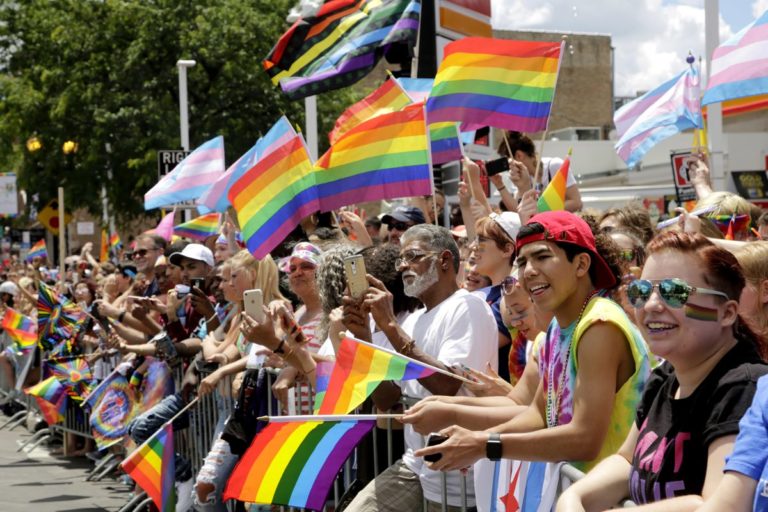1. 同志 (tong2 zhi4) : Gay
So, I’m going to put my favourite term first: 同志 (tóngzhì). It literally translates to comrade, but it’s used to refer to queer people of any sexuality and gender. It reminds me of the way “gay” meant ‘happy’ in English, but it now means same-gender attraction.
I love this phrase because comrade was a term of inclusion and community in China- a banner to unite under. Using comrade to mean queer feels like a promise of acceptance.
Here are some other words that you should definitely know!
2. 酷儿 (ku4 er): Queer
In addition to 同志 (tóngzhì), there’s also a transliteration of queer 酷儿 (kù er) that’s becoming more popular.
3. 男同志 (nan2 tong2 zhi4):Gay Man
男同志 (nán tóngzhì) means gay man. Just to be clear, this term is a noun and doesn’t refer to homosexuality itself. It can also be abbreviated to 男同 (nán tóng).
4. 女同志 (nv3 tong2 zhi4):Lesbian
女同志 (nǚ tóngzhì) means lesbian and can be abbreviated as 女同 (nǚ tóng). 拉拉 (lā lā) is a more casual term that Chinese lesbians use to refer to themselves.
5. 双性恋 (shuang1 xing4 lian4):Bisexual
双性恋 (shuāng xìng liàn) mean bisexual. This is word translates quite literally: 双 means two, 性 means sex or gender, and 恋 means love. So, 双性恋 (shuāng xìng liàn) means two-gender love.
6. 变性人(bian4 xing4 ren2):Transgender
I saw a couple of different translations for transgender, but the most common one was 变性人 (biànxìng rén). Literally, this means ‘changed-gender’ person.
7. 异性恋者(yi4 xing4 lian4 zhe3):Straight
For this one, I couldn’t find any articles or extensive answers, so I had to use the dictionary. According to The Cambridge Dictionary, 异性恋者 (yìxìng liàn zhě) means heterosexual. My guess is that this is term is fairly formal just as heterosexual is compared to straight.
Even though I was excited to learn all of this new vocabulary, there were a lot of words I couldn’t find such as asexual, pansexual, cisgender, and nonbinary. If you’re curious, there are translations for gender and sex terms on the Nonbinary Wiki, but it’s unclear how widespread and official they are.
However, I’m confident that as China becomes more accepting of queer identities, the language needed to describe them will evolve too! After all, China considered homosexuality a psychiatric disorder less than two decades ago, and now, there are annual pride parades in several cities, such as Hong Kong and Shanghai. There is no doubt in my mind that China will continue with this progress and become a nation that supports all people.



What about 父母?is there a non-heteronormative alternative? What about “partner?” A follow article would be great!